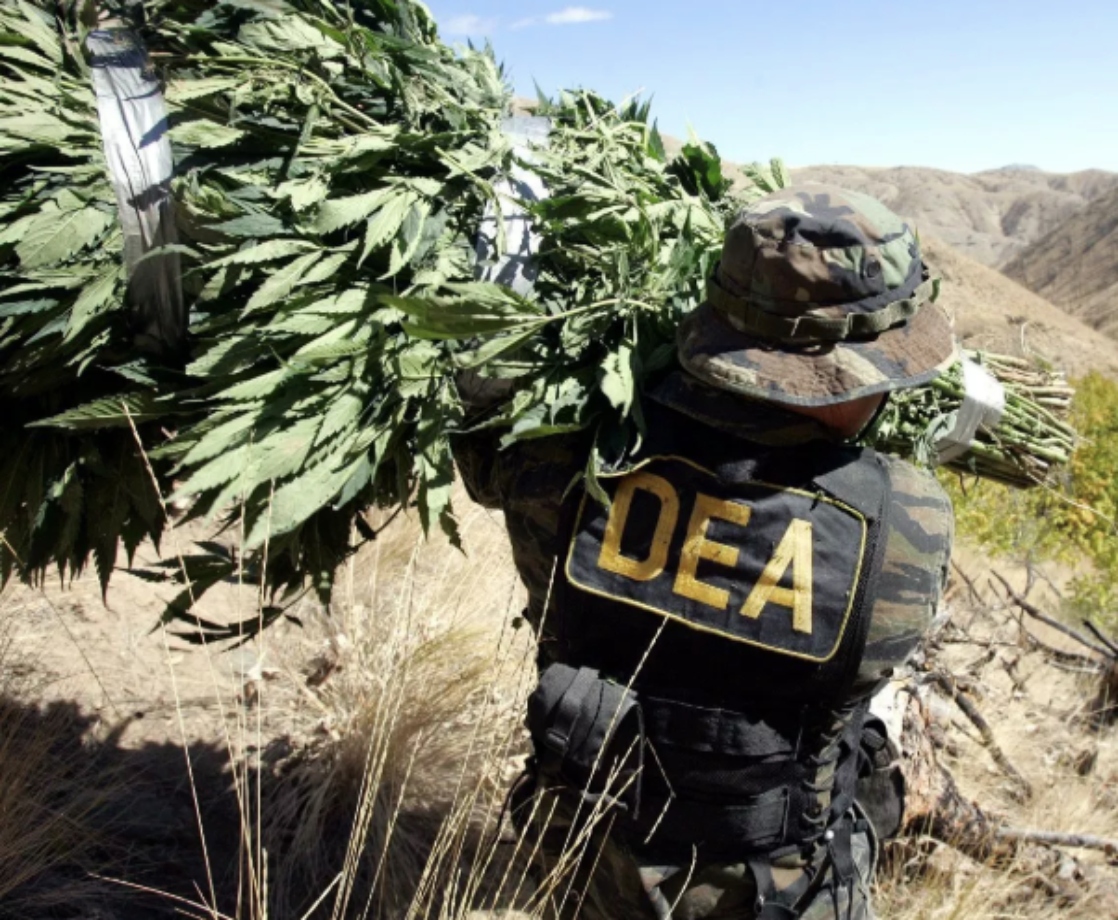The Drug Enforcement Agency (DEA) made more cannabis-related arrests in 2018 than they did the previous year, but seized and destroyed fewer pot plants, according to a new federal report.
The agency’s 2018 Domestic Cannabis Eradication/Suppression Statistical Report notes that federal agents arrested 5,632 people in connection with pot crimes last year — a 25 percent increase over the 4,502 pot arrests made in 2017. Most of these arrests occurred in states that still cling to strict prohibition laws. In Kansas, arrests rose well over 3,500 percent, from only 15 arrests in 2017 to 544 last year. Kentucky, Arizona, Nebraska, and Indiana also saw a large number of federal pot arrests last year.
The greatest number of arrests came from a state that has fully embraced legal weed, however. The DEA made 1,196 cannabis arrests in California last year, as part of a collaboration with local law enforcement to crush the state’s thriving black market. In all, the feds raided 889 outdoor grows and 516 indoor grows in the Golden State, seizing over 1.8 million illegal pot plants valued at nearly $4.7 million.
Even with this massive black market eradication effort, the total number of plants seized in California actually decreased by 40 percent from 2018 to 2017, due in part to the legalization of adult-use retail sales, which began last January.
Across the entire US, the DEA seized and destroyed a total of 2.82 million pot plants last year, a 17 percent decline from 2017, and a 66 percent decrease from 2016. But while the overall number of seized plants decreased, the reported value of government-seized assets actually more than doubled — to $52 million in 2018, up from $20.5 million two years ago.
Although the increase in pot arrests remains unaccounted for, advocates believe that the overall decrease in the number of seized plants indicates that state-level legalization laws are gradually weakening the demand for black market pot.
“Federal eradication programs are a holdover from a bygone era,” said NORML Deputy Director Paul Armentano to Marijuana Moment. “At a time when roughly one-quarter of the country resides in a jurisdiction where adult marijuana use is legal, and when members of Congress are openly discussing removing cannabis from the federal Controlled Substances Act, it is time for these federal anti-marijuana efforts to be put out to pasture and for federal agencies to take positions that more closely comport with cannabis’ rapidly changing cultural status in America.”











